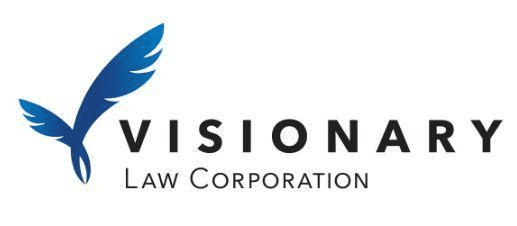Manitoba Estate Law
Trusts And Estates Lawyers in Winnipeg
Your Family matters
Estates and Trusts Lawyers in Winnipeg

Whether you need assistance in creating a trust, drafting a will, administering an estate, or resolving disputes, we are here to guide you every step of the way. With our deep knowledge of Manitoba laws and a compassionate approach, we are committed to delivering excellent legal counsel and peace of mind.
Request a consultation with us today to discuss your needs and let us help you secure your family’s future.
Why Do You Need a Trust?
A trust provides additional flexibility that can supplement or even replace wills. One of its main distinguishing factors is its ability to reduce the tax burden that an estate is subject to before being inherited by its heirs.
Additionally, a trust provides greater flexibility in stipulating how the inheritance can be used by its heirs, and the timing of distributions of that inheritance. For example, trusts can be used to ensure that a child with special needs is taken care of with regular distributions from the trust that are managed by a trustee.
Types of Trusts
There are two main types of trusts: living trusts and testamentary trusts.
Living Trusts
Like its name suggests, a living trust is created during the life of the grantor. However, it can be structured to continue after the death of the grantor.
A revocable living trust can be used to avoid the time and cost of the probate process and can be revoked by the grantor at any time.
An irrevocable trust leaves the grantor’s control upon creation of the trust and cannot be changed by the grantor after creation. However, irrevocable trusts usually have more tax advantages than revocable trusts.
Testamentary Trusts
Testamentary trusts are created after the death of the grantor. Unlike living trusts, a testamentary trust does not avoid the probate process.
What is Estate Litigation?
Estate litigation in Manitoba involves legal disputes arising from the administration or distribution of a deceased individual’s estate. These disputes may include challenges to wills, conflicts over power of attorney decisions, and disagreements regarding estate administration. Whether contesting the validity of a will or addressing issues with estate trustees, parties rely on provincial laws and court rules to seek resolution. Visionary Law in Winnipeg offers expert guidance in estate litigation matters, providing strategic advice and representation to ensure clients’ rights are protected, and their interests advocated for effectively.
With experienced legal representation, individuals involved in estate disputes navigate the complexities of litigation, aiming to resolve conflicts efficiently and fairly. Visionary Law’s team of knowledgeable lawyers assists clients in understanding their legal options and provides compassionate support throughout the litigation process.
Here’s an overview:
The Will & Power of Attorney
Challenges to wills often revolve around capacity or undue influence. Similarly, power of attorney disputes may arise if the donor lacked capacity or the attorney acted improperly.
Executor’s Duties
Executors must fulfill their fiduciary duties by managing assets, paying debts, and distributing the estate according to the deceased’s wishes.
Estate Disputes
Disputes may arise even before probate, potentially delaying estate administration. The Intestate Succession Act applies when there’s no will.
Application to Court
Parties can bring disputes to court through a Notice of Application, outlining concerns and seeking resolution.
Affidavit & Process
Evidence supporting the application is presented in affidavit form. Parties must serve all interested parties and attend court appearances to resolve the matter.
The First Court Appearance
At the initial court appearance, typically scheduled on the Uncontested List, the judge assesses the urgency of the matter. The judge may decide to proceed on an uncontested basis or refer the case to the Contested List for further review.
Legal Representation
Parties have the right to be represented by counsel and may file their own affidavits in response to the Notice of Application. Some parties may even file independent applications to address additional concerns.
Adjournments and Resolutions
The first court appearance may be adjourned multiple times to allow parties to submit materials and ensure all interested parties are served. Ultimately, the judge determines the procedural path for resolving the dispute.
Navigating the complexities of estate litigation requires experienced legal guidance. Visionary Law provides strategic representation and ensures your interests are safeguarded throughout the court process. Trust us to advocate for your rights and provide clarity as we work towards a resolution.
Additional Estate Litigation Questions
Clients often seek clarity on the costs and duration of estate litigation. However, estate disputes can be costly, as legal fees correlate with the complexity of issues involved.
The complexity and time-consuming nature of estate litigation contribute to its expenses. Each case is unique, making it challenging to provide precise cost estimates upfront.
After filing affidavit materials, it’s possible to establish a litigation budget, although exact costs may still vary. Consulting with legal professionals can help in understanding potential expenses and creating a tailored budget for your case.
Estate litigation costs can vary significantly depending on the intricacies of the case. Visionary Law offers transparent guidance and works with clients to develop realistic litigation budgets. Trust us to provide clarity on potential costs and advocate for your interests throughout the litigation process.
Historically, courts often ordered payment of legal fees from the estate, regardless of the party’s involvement. This approach aimed to address issues arising from will drafting or execution flaws, rather than individual fault.
Recent court rulings acknowledge the presence of innocent parties in estate disputes who shouldn’t bear their legal fees. The court may order unreasonable parties to cover the costs incurred by the innocent or reasonable party, either fully or partially from their own resources.
All parties involved should be aware of potential cost implications for taking unreasonable positions in estate disputes. Recognizing the risk of bearing legal fees personally can encourage parties to approach the litigation process with reasonableness and cooperation.
Understanding the evolving landscape of estate litigation costs is crucial for all parties involved. Visionary Law provides strategic guidance to navigate estate disputes effectively while considering potential cost implications. Trust us to advocate for your interests and provide clarity on cost responsibilities throughout the litigation process.
What are the benefits of a trust in Manitoba?
Creating a trust in Manitoba can offer several benefits in estate planning. Some key advantages include:
- Probate Avoidance: One significant benefit of a trust is the potential to avoid probate, which is the legal process of validating a will and administering the estate. Assets held in a properly established trust may bypass probate, saving time, expenses, and maintaining privacy for the beneficiaries.
- Estate Tax Planning: Trusts can be used to minimize estate taxes. By transferring assets into specific types of trusts, such as testamentary trusts or spousal/common-law partner trusts, it may be possible to take advantage of tax-saving strategies, potentially reducing the overall tax burden on the estate.
- Asset Protection: Trusts can provide a level of asset protection. Placing assets in a trust can safeguard them from creditors, lawsuits, or potential claims, ensuring their preservation for the intended beneficiaries. Trusts can be particularly valuable in protecting assets for future generations or individuals with special needs.
- Control and Flexibility: Establishing a trust allows the settlor (the person creating the trust) to maintain control over the assets even after transferring them to the trust. Through careful drafting, the settlor can specify how the assets should be managed, distributed, and used for the beneficiaries, ensuring their wishes are upheld.
- Privacy and Confidentiality: Unlike a will, which becomes a public document during probate, a trust offers greater privacy. Trusts are generally not filed with the court and do not become part of the public record, allowing for confidential management and distribution of assets.
It’s important to consult with an experienced estate planning lawyer in Manitoba to understand the specific benefits and limitations of trusts based on your unique circumstances. They can guide you through the intricacies of trust planning, ensuring compliance with provincial laws and helping you make informed decisions to achieve your estate planning goals.
How can a family trust help minimize estate taxes and protect family assets in Manitoba?
A family trust in Manitoba can minimize estate taxes and protect family assets through several key strategies. Firstly, transferring assets to the trust can remove them from the taxable estate, reducing the overall estate value subject to taxation upon the settlor’s death. Additionally, income splitting among family members within the trust allows for tax optimization, as income can be distributed to beneficiaries in lower tax brackets.
The trust can also provide capital gains tax deferral by holding appreciated assets, potentially resulting in tax advantages upon their sale. Lastly, a family trust offers asset protection by separating assets from personal ownership, safeguarding them against potential creditors or legal claims. Consult a Manitoba’s Visionary Law Corporation for personalized advice and to maximize the benefits of a family trust for your specific situation.
How to Create a Trust
A trust is created when the property owner, or grantor, transfers ownership of that property to a trustee, who can be either a person or an institution. The trustee then manages the property of the trust for the benefit of the beneficiaries of that trust, and is legally obligated to act in the best interests of the beneficiaries. The trustee is often compensated for managing the trust.
How to appoint an estate trustee during litigation
In estate planning discussions, the role of the Estate Trustee (ET) often takes center stage. However, conflicts among siblings or beneficiaries can complicate estate administration, leading to mistrust and challenges.
Appointing a child as ET in a conflicted scenario may create challenges, with beneficiaries questioning every decision. Without addressing these issues early, estate administration can be hindered by tension and disputes.
To address conflicts, an Estate Trustee During Litigation (ETDL) can be appointed through court application. An ETDL, typically a trust company or lawyer, acts impartially to administer the estate until litigation concludes.
Under the Estates Act and civil procedure rules, the court has broad powers to appoint an ETDL, ensuring impartial administration during litigation. The ETDL must act in the best interests of all beneficiaries, maintaining fiduciary obligations.
In addition to resolving conflicts, ETDLs can expedite estate administration, especially in jurisdictions with lengthy delays in obtaining estate trustee certificates. Courts may appoint ETDLs to facilitate property sales, benefiting from timely market opportunities.
Request an Initial Consultation
Please complete the form below or call us at (204) 515-6020 to request an initial paid consultation with Visionary Law. We will contact you as soon as possible to schedule an office visit. Information shared with our office in this form and during our consultation is and will remain private and confidential.
This form is for booking a family law / estate administration consultation. You will be charged at the lawyer’s hourly rate (prorated) for the length of the consultation along with any time needed to review documents by the lawyer. Our advice is based on the information provided by you, failure to include relevant information necessarily affects the reliability of the advice given. Information shared with our office in this form and during our consultation is and will remain private and confidential. This meeting will not create a solicitor-client relationship. Consultations are intended to allow you a chance to evaluate our services and to provide general legal advice only.




